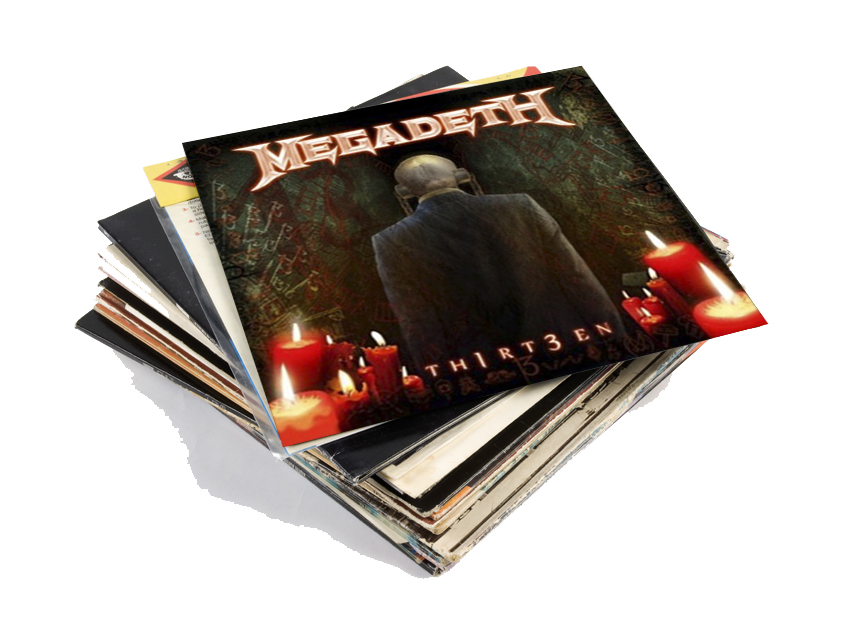
Megadeth's TH1RT3EN: full album preview
"Making this album was a very intuitive and spontaneous process," says bassist Dave Ellefson of Megadeth's upcoming disc, TH1RT3EN. "We recorded everything after the Big 4 show we did in Indio, California and before the German Big 4 show, so we had about 10 weeks to get in and knock the whole thing out."
Despite the tight window, Ellefson, who was part of Megadeth's classic lineup from 1983 to 2002, and who rejoined leader Dave Mustaine and the fold in early 2010, says that the making of TH1RT3EN was "probably the most fun I've ever had in the studio, and I think the rest of the band would say the same thing."
In moving fast, Ellefson says that the group, which also includes guitarist Chris Broderick and drummer Shawn Drover, dispensed with "that whole 'band-in-the-room-for-three-months-writing-and-making-demos' kind of thing. Doing that and then trying to decide on a producer – that can take up to a year. We looked at our schedule, looked at our shortlist of producers – Johnny K was right up there, and he was available – and we went for it."
According to Ellefson, Johnny K, who has worked with Disturbed, Black Tide and Machine Head in recent years, "was the perfect guy for what we needed to do right now. He spent time on important things, but he didn't waste time on stuff that nobody would notice. He let us go in, do our jobs and kick ass."
As both a band member and listener, Ellefson says that TH1RT3EN - the 13th studio album in the band's catalogue (duh!) - pushes all the right buttons. "I sit back and listen to this record, and it rocks my world," he enthuses. "It flows out of the speakers, my toes start tapping, and I want to move. Megadeth’s best records have always made you drive fast in your car. Just don’t blame us for any speeding tickets!"
Megadeth's TH1RT3EN will be released on 1 November. On the following pages, Dave Ellefson walks us through the record track-by-track.
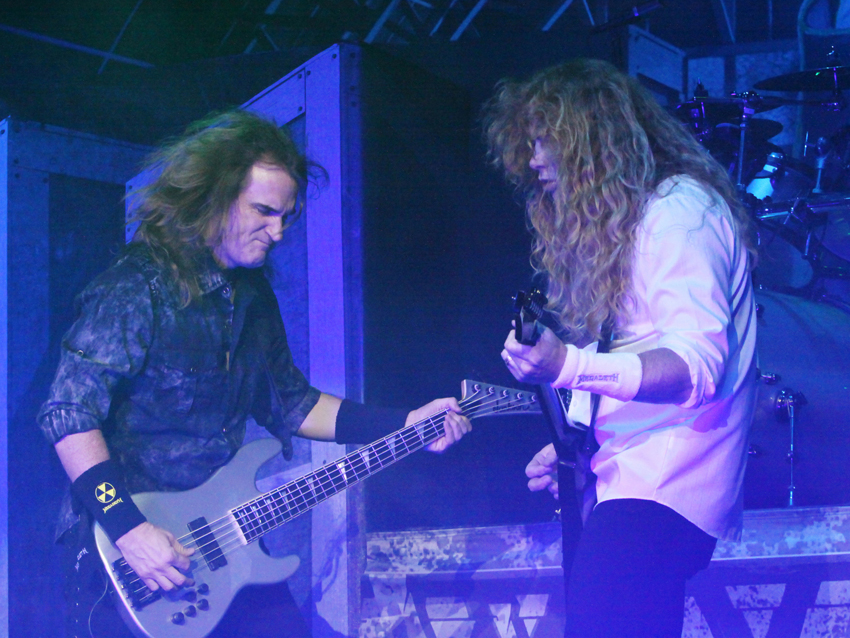
Sudden Death
“This is a track that was being worked on when I rejoined the band. I came in on a Friday, I played my part on a Saturday, and on Monday we put out the press release that I was back in Megadeth. So this song represents a real homecoming for me.
“Musically, I wanted to combine a New Wave Of British Heavy Metal and a thrash style in my bass playing. There’s some great rhythmic work going on, particularly in the intro, and the riff, especially towards the end, gives me a chance to move up an octave and create tension underneath the guitars.
“All by itself, it’s a very exciting song. But when I think about what it represents, it’s deep on an emotional level.”
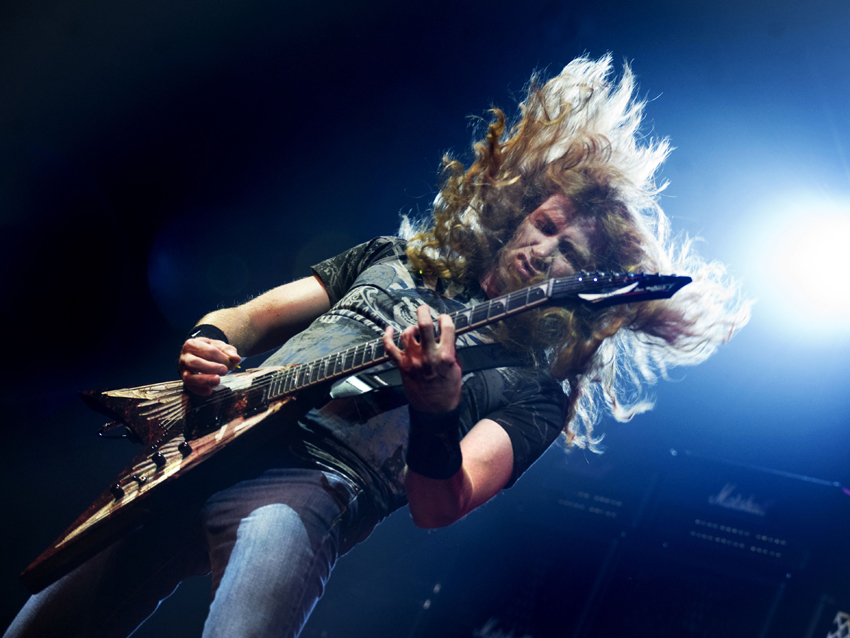
Public Enemy No. 1
“We started writing this song during a soundcheck in Croatia last year, and we finished it in Vienna, Austria a short while later. Funnily enough, earlier this year we wrote another song on the record called Never Dead in the same venue in Austria. So that place has magic in it.
“Again, it’s another New Wave Of British Heavy Metal-type song, at least as far as what I do. I loved the early Def Leppard records, and I’m copping a bit of a Rick Savage bass approach on it.
“I really tried to write around the vocals. I love to hear as much of the band, especially the vocals, when I record a bass part. As a player, I want to be the mortar between the blocks that glue the building together. Once the vocal melody developed, Johnny and I worked with Dave, and that allowed me to put down a strong bass part.
“It was a fun way to record. I had a lot of note choices available to me, and there’s a cool moving bassline in the B section of the verse as well as the chorus. As a listener, none of that matters, but hopefully, you’ll feel the song jump.”
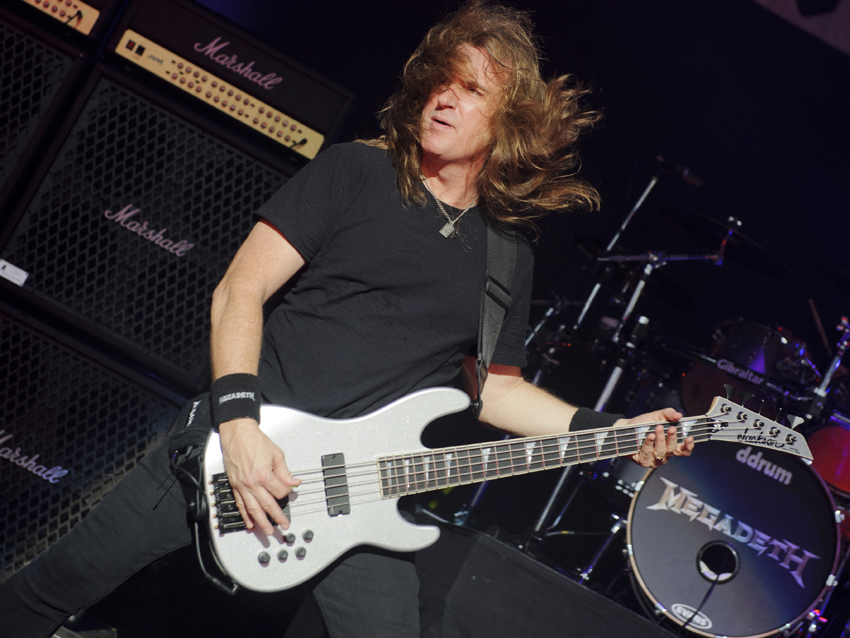
Whose Life (Is It Anyways?)
“This is some of my favorite kind of bass playing. In a not very obvious way, it harkens back to a kind of punk-rock style of picking.
“I went at it with a lot of fervor and tried not to overthink what I was doing. My main goal was to lock in with the drums. It’s a blazing song. Total attitude, lots of fun.”
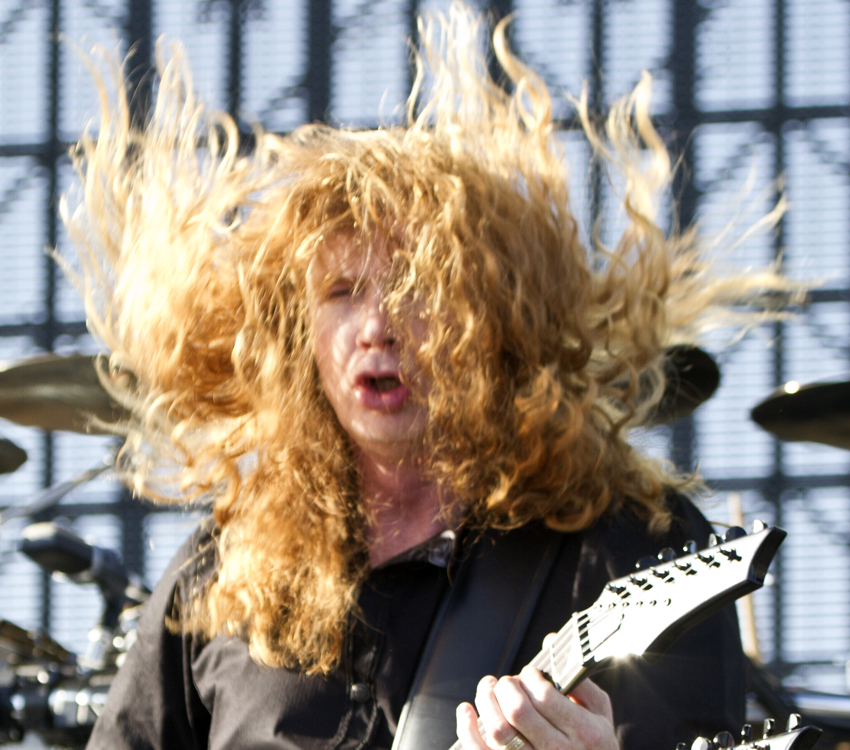
We The People
“This song is like riff-mania. Dave has a great ability to write a fantastic array of riffs, and he’s a master at compiling them to create a song. He writes a riff, then he writes another riff, and when you think he can’t come up with another one, he does so – and then he puts them all together.
“Anybody who loves amazing Megadeth riffs will really be into We The People. It’s a total explosion of great parts.”
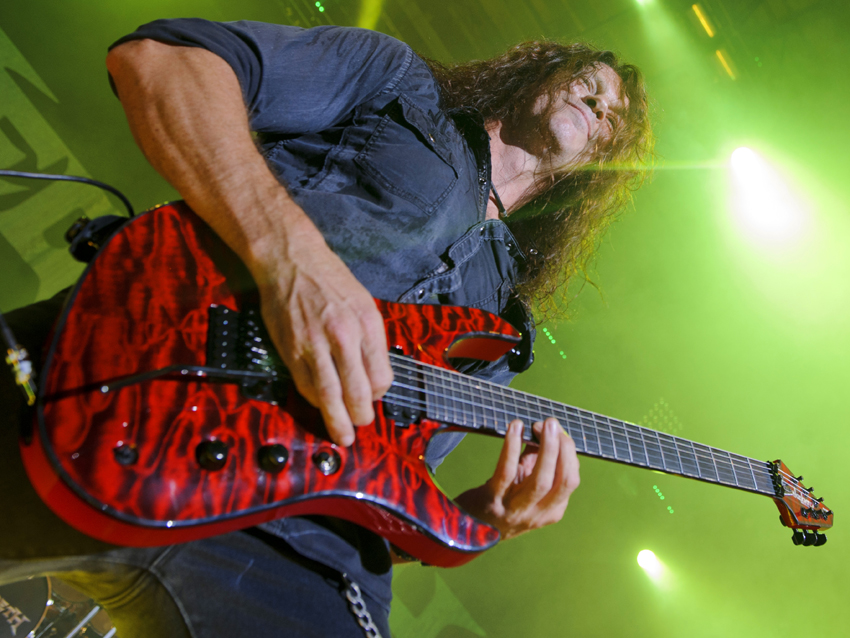
Guns, Drugs & Money
“I can’t even tell you how happy I am that we have a song that is made up of one riff. [laughs] That’s not always easy to do. I know a lot of metal fans don’t like Green Day, but I think they’re masters of the one-riff song. That’s what we did here, and it works beautifully.
“It’s so punk rock, the one-riff idea. The Ramones did it on so many of their songs - maybe all of them. When I heard Dave play this part, I knew that was all we needed. The band shifted dynamics in the chorus, Dave played around with the vocal melody…and it was a song!
“Many of our tracks are quite complex; that’s probably something a lot of our fans like about what we do. The genius of Guns, Drugs & Money, however, is in its simplicity.”
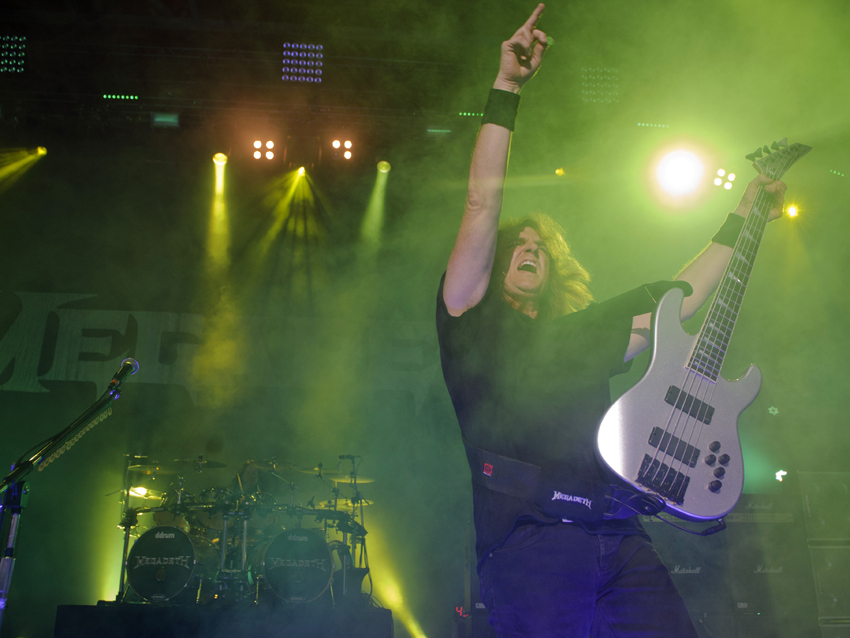
Never Dead
“When Dave first played me this riff, I was floored. It was so violent and in your face, it reminded me of the Peace Sells album. In particular, it sounded a little like Good Mourning/Black Friday, but in a great new way. I loved it.
“What’s funny is, Dave forgot about it for a while. We got together earlier this year to work on some stuff, and I reminded him about this one, and he couldn’t remember it. Fortunately, he had recorded it on his BlackBerry, so he was able to find it.
“As soon as we all started playing it for real, we were like four little kids jumping around a room. It’s such a strong riff. It's so huge, you can’t help but get crazy when you hear it.”
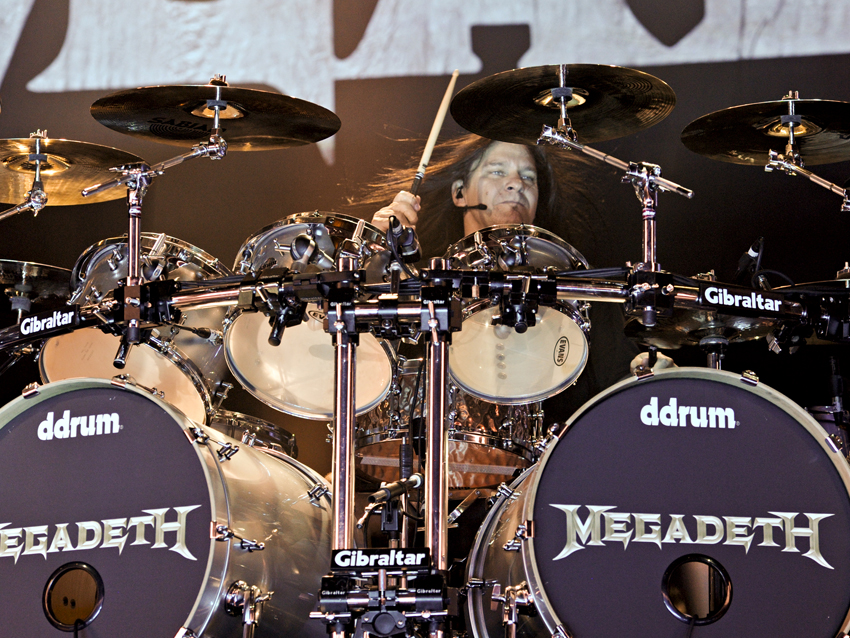
New World Order
“This one goes way back. We wrote it on the Clash Of The Titans tour in 1991 and made a demo of it for Countdown To Extinction, but it didn’t fit on that album for whatever reason. So it sat on the shelf all these years – however, it was included on the remixed and remastered Youthanasia record.
“Shawn Drover really pushed to have New World Order be on this record. Of all the songs that have never been officially released as formal master recordings, he really thought it was ready.
“It’s such an old-school thrash tune. We re-recorded it, and I think we improved the outro section for the solos. Dave updated some parts and made them more violent. It’s so cool! [laughs] Here we are, 20 years later, finally getting the song right and made into a master recording.”
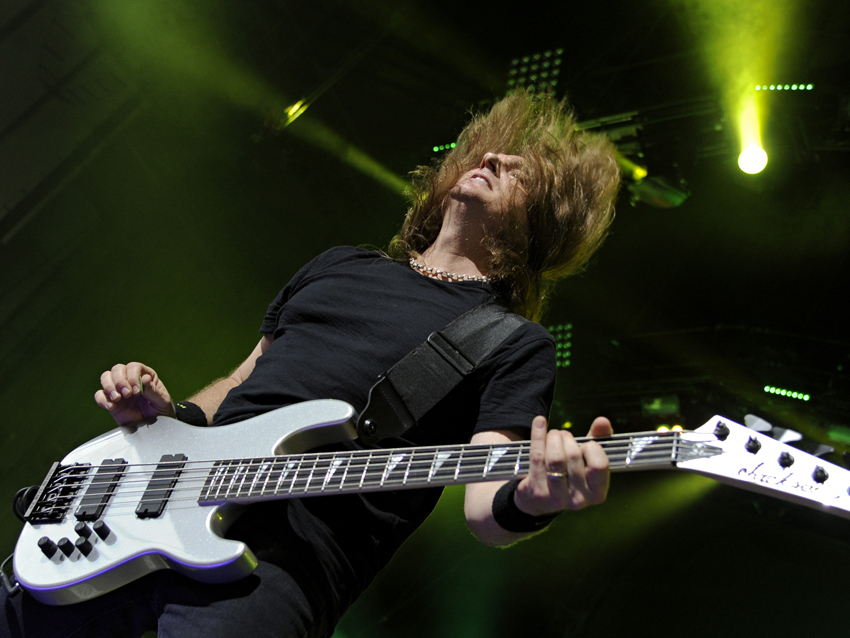
Fast Lane
“Fast Lane was a funny one. As a bass player, it was all about learning some fancy licks, going into the studio and having the producer say, ‘Man, can’t you just play some eighth notes?’ [laughs]
“This song was me hunkering down and knocking it out and making my wrist a fulcrum. I'm just playing eighth notes, sixteenth notes, holding down the fort. I got going and locked in with the drums, and pretty soon, I didn't even know the tune was over – I was in the zone.
“Another cool driving song. You put this one on in your car, and you’re flying.”
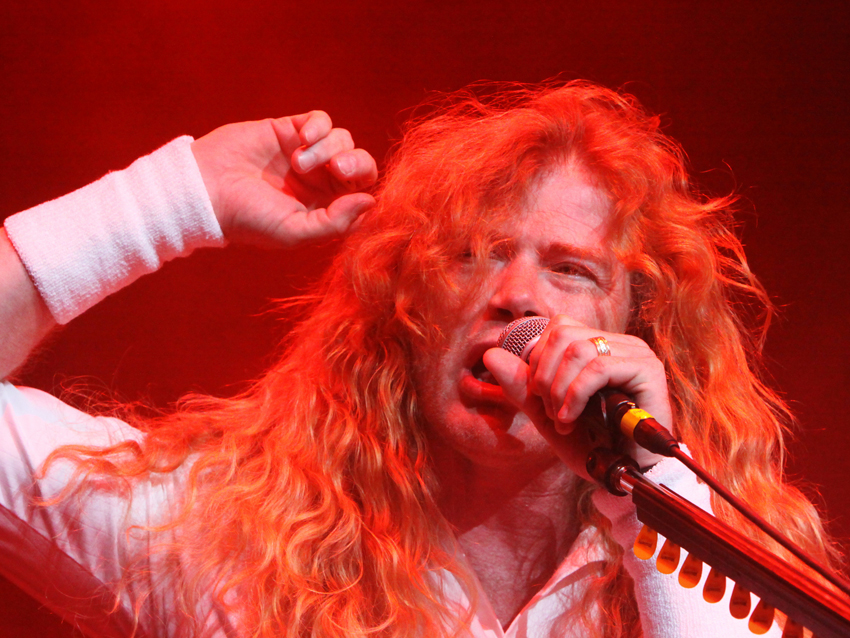
Black Swan
“Black Swan had been recorded and not officially released during my time away from the band. When I heard it, it was one of my favorite tunes, and I could never figure out why it was never put out there. [laughs]
“I love the melody, the lyrics, the whole vibe. It was written before the movie Black Swan, so it has nothing to do with that - although people might naturally assume that's the case.
"I was really happy that Johnny K picked Black Swan out and said we should finish it up. As a listener, it really gets me.”
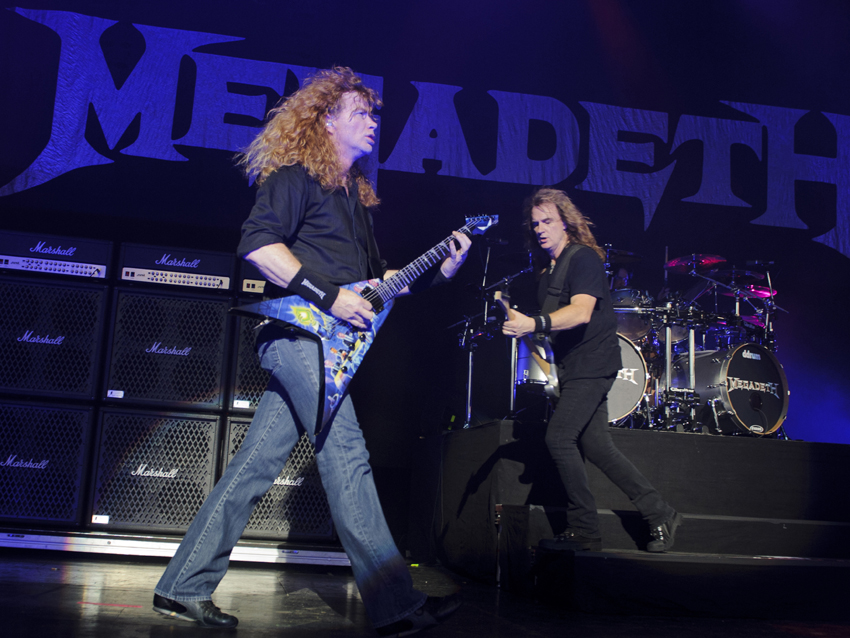
Wrecker
“This has one of the wittiest and funniest set of lyrics. I know Dave’s words are sometimes kind of dark, but Wrecker represents more of the humorous side to him.
“The riff is massive. It’s one of those parts where the whole band just rallied around and dug in and blew the house down. Some riffs are good, others are great, and then there’s riffs that just rock your world. Wrecker is the last example.”
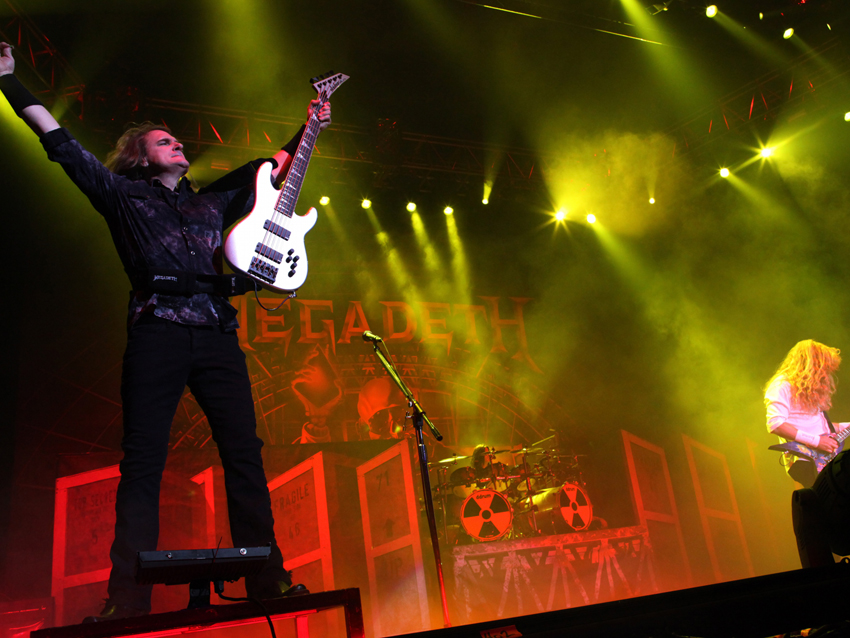
Millennium Of The Blind
“Funnily enough, another song that was started in 1991. I don't know what it was about 1991. Anyway, a demo was made, but it was never released. We only had a few minutes of it on tape, so it needed some development. Dave and Johnny K really brought it up and made it into a full-length song.
“I’m glad they took the time with it, because it always had the startings of greatness, but it was never nurtured properly. Now it’s lived up to its promise.
“A lot of our stuff has to sit for a while. A great idea is a great idea, and if you come back to it, there’s gotta be a reason. I’m glad this song’s time has finally come.”
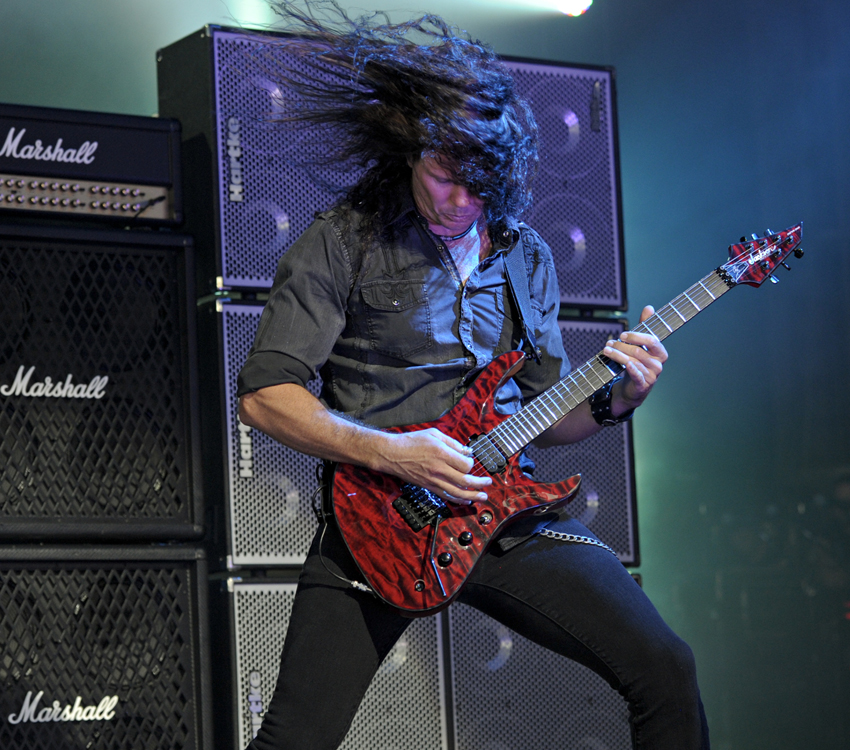
Deadly Nightshade
“Originally, the riff was written during the sessions for Youthanasia, or maybe Cryptic Writings. It’s been around for a while. See what I mean? Some of our stuff has to sit for a while.
“I’m so happy that the riff matured into a complete song – it's so menacing. [laughs] I seem to recall playing the basis for the song in Rome, Italy, during a soundcheck, and I remember seeing the janitor and the popcorn lady turning around and getting into it. That meant something to me.
“When you get right down to it, that’s the true test of a great song. Plenty of people will tell you something is cool, but if you can get the janitor and the popcorn lady at a venue rocking out to an unfinished song, come on, then you know it’s cool!” [laughs]
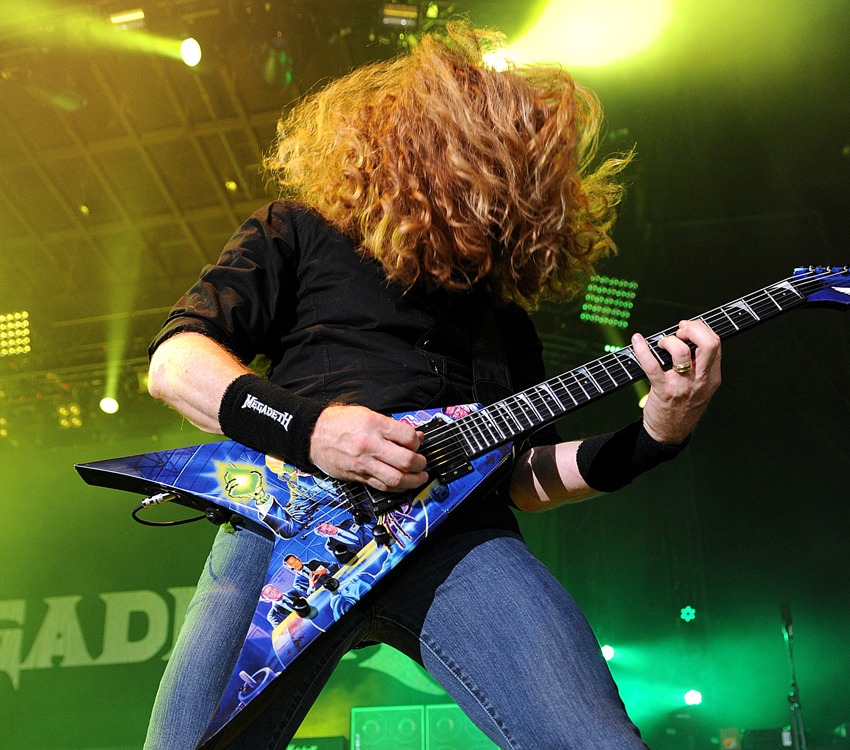
13
“It really epitomizes the story of Megadeth. Before starting the record, Johnny K had read Dave’s autobiography, and I think that helped him understand Dave’s psyche, as well as what Megadeth is all about.
“As the song was being developed musically, the words started to spill out onto the page, largely from Johnny’s conversations with Dave. If you ever wanted to hear a song that summed up the arc of Megadeth as a band, 13 is it.
“Chris Broderick did a great job with the acoustic and clean-sounding electric guitars. As a bassist, I love playing to those kinds of tones. They’re very open, and they let me be creative with the licks and the lines. It’s like bass playing from the 1970s, or even the ‘60s. James Jamerson, the great Motown bassist – I definitely tried to cop some of his groove, a very flowing style.
“The song ends on such a high. Megadeth hasn’t had a big, theatrical kind of song since In My Darkest Hour, so now we’ve got another one with 13. It’s the perfect ending to a great album.”
Joe is a freelance journalist who has, over the past few decades, interviewed hundreds of guitarists for Guitar World, Guitar Player, MusicRadar and Classic Rock. He is also a former editor of Guitar World, contributing writer for Guitar Aficionado and VP of A&R for Island Records. He’s an enthusiastic guitarist, but he’s nowhere near the likes of the people he interviews. Surprisingly, his skills are more suited to the drums. If you need a drummer for your Beatles tribute band, look him up.
